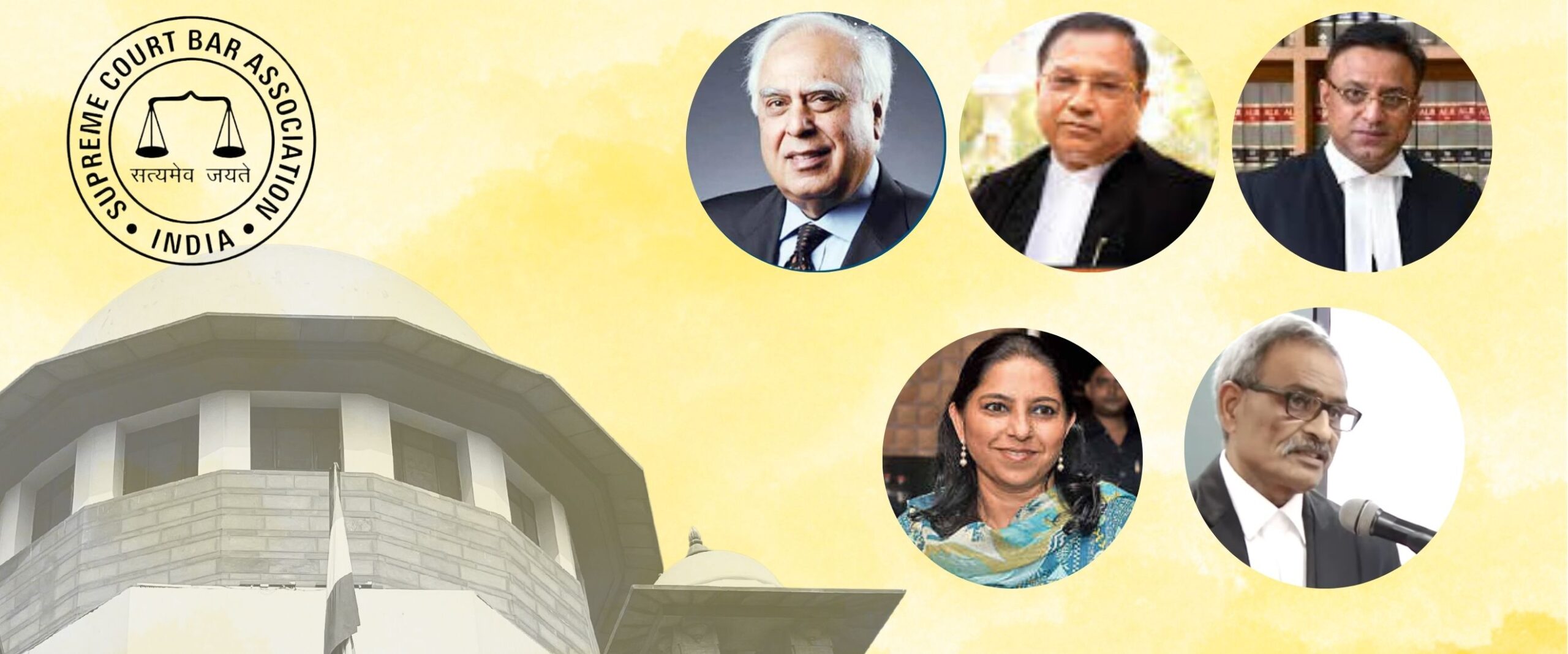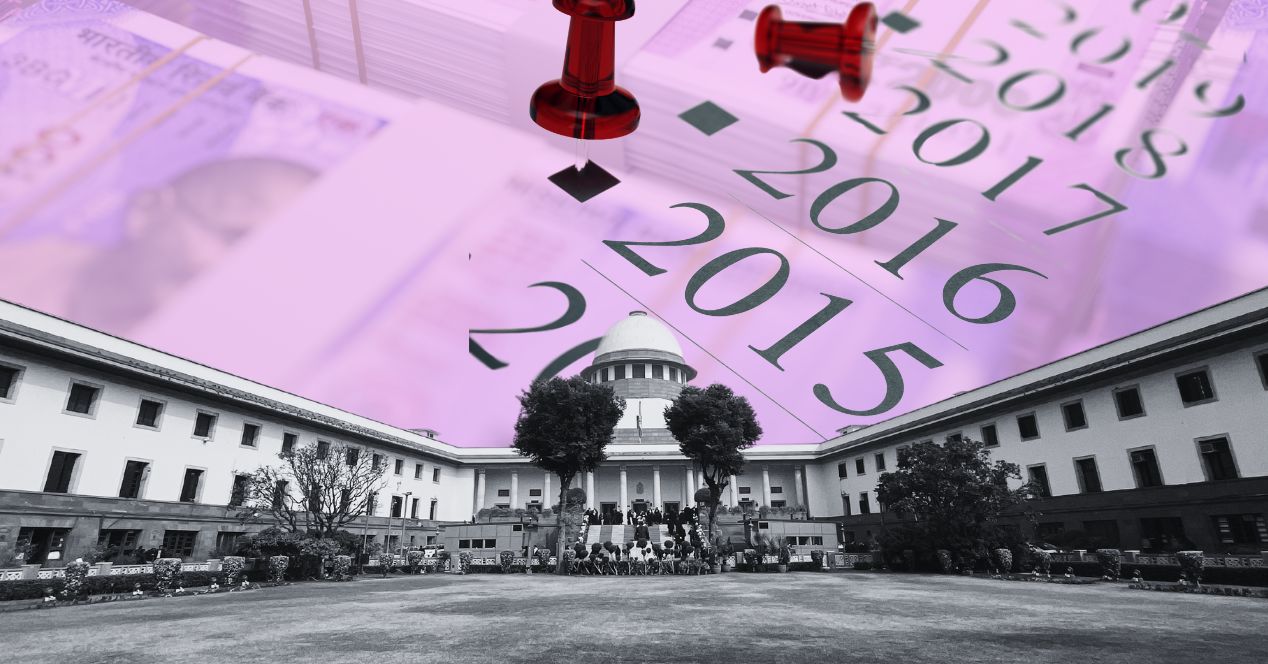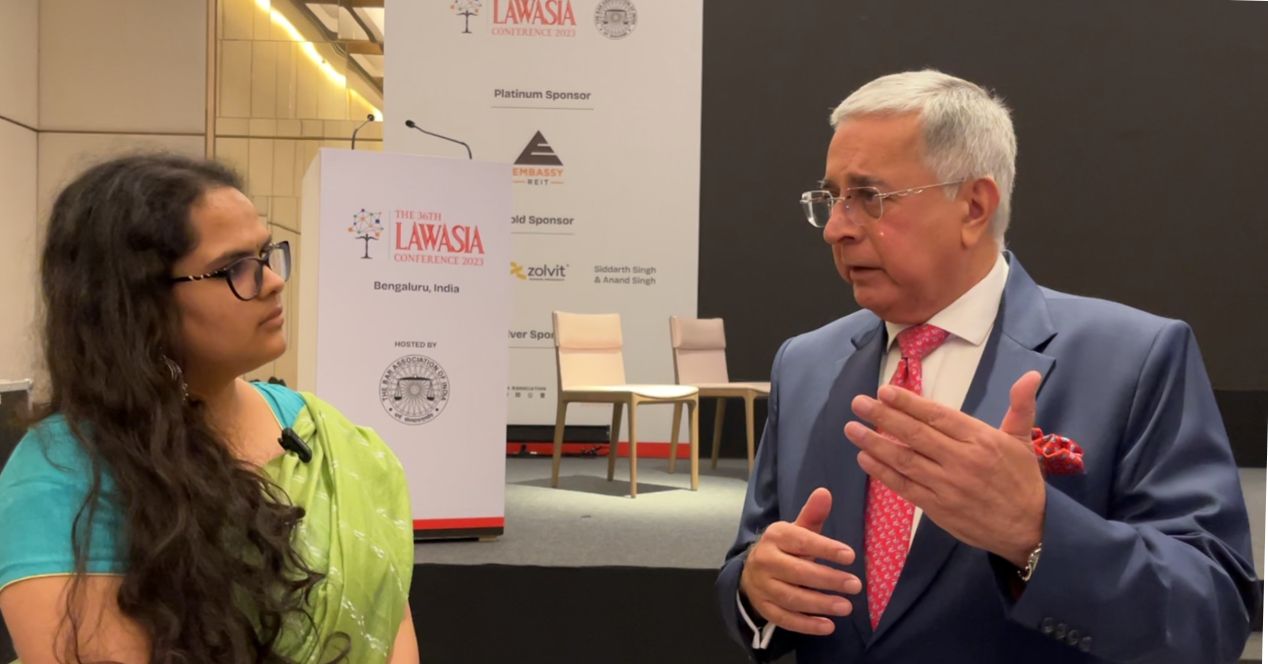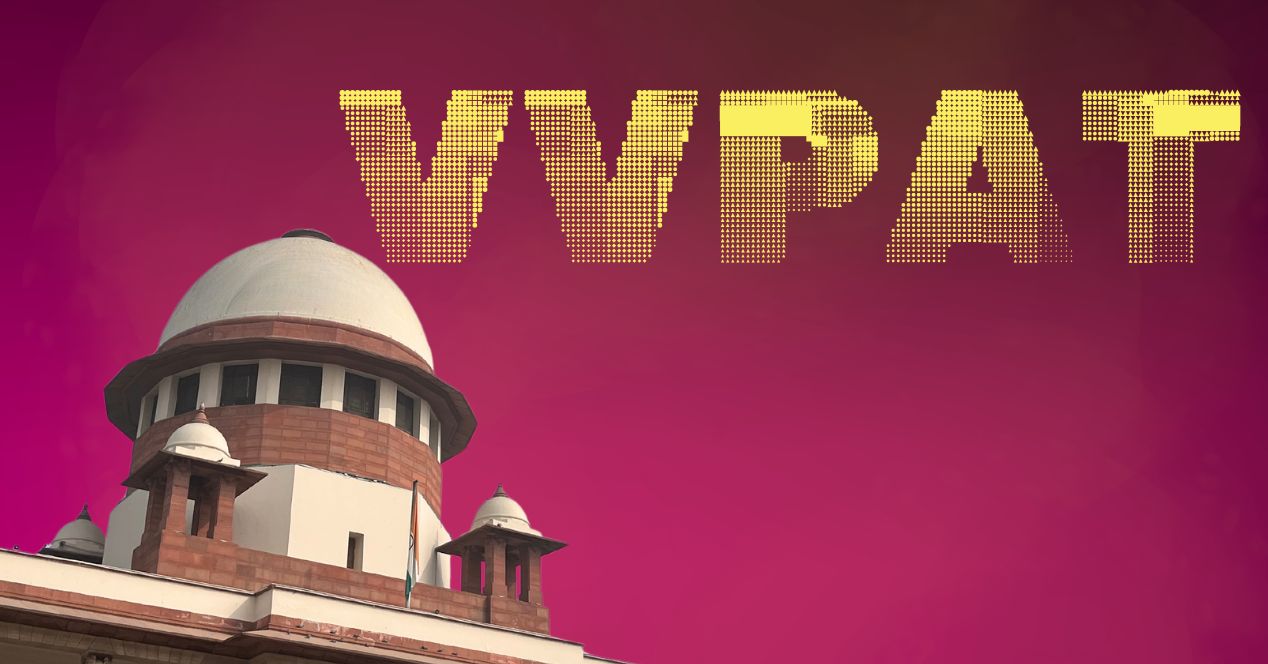Analysis
SCBA elections 2024: Has Kapil Sibal’s last minute entry changed the game?
As the Supreme Court Bar Association prepares to vote its new leaders on 16 May, we bring you the contenders, the issues, and the odds

For the last few days, the law chambers of Jangpura and Nizamuddin East have been abuzz with chatter of a different kind of election—the Supreme Court Bar Association (SCBA) goes to its polls on 16 May. With Senior Advocate Kapil Sibal’s dramatic entry into the fray for the post of President, the battle has taken on a more political colour. Sibal will challenge the incumbent Adish Aggarwala and four others—Pradeep Kumar Rai, Priya Hingorani, Tripurari Ray and Neeraj Srivastava.
Regulars versus non-regulars
In Supreme Court Bar Association v B.D. Kaushik (2024), a Division Bench comprising Justices Surya Kant and K.V. Viswanathan has been hearing arguments in favour of reform in the SCBA. While noting that the rules governing its function “cannot remain static for decades”, the Bench prioritised women’s reservation in the leadership—minimum one-third seats in the nine-member Executive Committee, two out of six posts of Senior Executive Members and at least one post of Office Bearer exclusively by turn and on rotation basis from this year onwards.
However, in the run-up to the election, the talking points that have animated the 2852 registered voters of the SCBA are centred around some other issues that have come up in the Kaushik case. A particularly hot topic is about practising and non-practising advocates.
One of the eligibility requirements is that candidates must have five years standing at the Bar to contest to be an Office Bearer and three years standing at the Bar to be an Executive Member. This requirement, which has remained static for several years, is the cause of dissatisfaction among many.
According to a current Senior Executive Member, who spoke to the Supreme Court Observer on condition of anonymity, very few regular practitioners have been elected as office-bearers in recent years. Attempts to reform the rules to prevent non-regular practitioners from getting elected have not yielded results so far, although this is one of the issues before the Supreme Court in B. Kaushik. One of the reform proposals requires an advocate to have appeared in at least 50 matters in the preceding two years to be eligible for standing for the post of President.
“The SCBA is meant for giving voice to those who practise in the Supreme Court, so only regular practitioners with a minimum number of appearances should be eligible to contest for the various posts,” the Senior Executive Member said.
Change in Bar’s character
The member said that another aspect weighing on the minds of some of the members is the SCBA’s apparent fall from grace. “What you need is a strong and independent Bar which the judges also respect. But the SCBA’s image has taken a beating in recent years,” the member said.
The member, who is now seeking another term, was pleased that Kapil Sibal is standing for elections after a gap of two decades. “He is a very respected person in the Bar—a stalwart and a regular practitioner.”
Others are not so optimistic about Sibal’s chances. Prashant Padmanabhan, an Advocate-on-Record, felt that the change in the character of the Bar over the years could cost Sibal the election. “If the Bar has to be effective, Kapil Sibal should be there as President,” Padmanabhan said. “But there is stiff opposition to his candidature. The Bar is no longer the same which he had led earlier for three terms two decades ago.”
Padmanabhan said that many in the Bar consider Sibal as “belonging to the elite club, with a leaning towards minorities.” Given the way the political winds have been blowing and the new make-up of the Bar, this could limit the possibility of Sibal’s return as President.
In fact, Tripurari Ray has made anti-elitism the primary plank of his candidature. Ray told SCO that he represents the large legion of lawyers who “work hard but don’t have connections in high places.” “In this pro-elite ecosystem of the Court, what you know is not as important as who you know,” Ray said. “Take the Amicus Curiae panel—unless someone refers your name, they will not consider you for inclusion.”
Ray, who is not a Senior Advocate, said that, if elected, he will use the SCBA platform to achieve equal treatment for the “non-elites.” “They are treated as second-class citizens, though they work hard,” Ray said. “The seniors make them feel small.”
To make his point about the Court’s preference for engaging with Senior Advocates, Ray cited his own experience in an important case where the constitutional validity of Section 364A of the Indian Penal Code (death penalty for kidnapping) was challenged. His grievance was that the judgement didn’t detail his main arguments. “The SCBA can pass a resolution to rectify such distortions and ensure judges follow objective standards in reported judgements,” Ray said.
Hingorani banks on her apolitical image
Priya Hingaroni, another strong contender, is relying on her previous work as Honorary Secretary (she was the first woman in the post) for three years and Vice President for two years. She takes credit for her contributions to library audit, electoral reforms, and lawyers’ training. Hingorani has promised to hold a General Body Meeting once in three months and introduce a Code of Conduct for Members.
Hingorani admits that Sibal’s announcement on the day before nominations closed has changed the dynamics of the election. However, she hopes that members will prefer her “accessibility, apolitical functioning and non-controversial image.”
Balaji Srinivasan, an Advocate-on-Record told SCO that the real issue on the minds of voters is whether the new President can restore the influence and respect of the SCBA with the Registry. According to Srinivasan, the Registry has stopped consulting the SCBA or the Supreme Court Advocates-on-Record Association before taking decisions. Srinivasan felt that Hingorani had an edge over Sibal when it came to connecting with members. “She’s more popular among members, and they fondly remember her presence and support at difficult moments, such as when a relative passed away or at the time of health crises during the pandemic,” Srinivasan said.
Will Sibal’s appeal to ‘rule of law’ cut ice?
In an interview, Sibal said he’s contesting for the post of President to build out a strong Bar that “protects the rule of law.”
He suggested that the SCBA and those wielding political power need not necessarily have a “cosy relationship” and felt that the Association “should raise its voice when constitutional ideals are at stake.” While Sibal’s promises to help poor lawyers and their families will resonate with many members, many are sceptical about his potential tenure being as apolitical as he promises.
Justice V.N. Sinha, former judge in the Patna High Court and now Senior Advocate, echoed Balaji Srinivasan’s sentiment that Sibal’s plank of independence of the judiciary may not appeal to most voters. Even as he felt that Sibal was “most suitable for the office,” he is doubtful about his performance in the elections. According to Sinha, the two things working against Sibal are “the type of voters who constitute the majority within the SCBA” and the demographic of young voters who would prefer the Association’s leaders to be more “accessible.”
The consensus seemed to be that the “type of voters” who may dislike Sibal will favour incumbent Adish Aggarwala or Pradeep Kumar Rai. Aggarwala’s chances, however, may have been severely affected by his recent and immature intervention in the Electoral Bonds case. Under the letterhead of the All India Bar Association, and in his capacity as Chairman of that organisation, he wrote to President Droupadi Murmu, requesting her to put the Supreme Court’s judgement on hold. The SCBA Executive Committee disapproved of his letter in a strongly-worded resolution.
It was not the first time that Aggarwala had shot off a letter without consulting Committee Members. A previous letter to the Chief Justice of India described the farmers’ protest as “politically motivated” and sought suo moto action against “erring farmers.” Over 150 SCBA members signed a resolution calling for Aggarwala’s removal.
In March 2024, Senior Advocate Ranjit Thomas noted in a letter to Aggarwala that Executive Committee meetings had not been convened in five months. Thomas wrote that he was “pained” that Aggarwala, along with “few persons”, were taking unilateral decisions on behalf of the SCBA while ignoring infrastructure and administration issues. Last week, Thomas wrote an open letter stating that professional values that were the “hallmark of elected Executive members” were missing this year.
Yet, it’s clear that Aggarwala has built a support base during his tenure, which would help to split the votes, although it is hard to say who will be its beneficiary. Rai, too, has pockets of influence in view of his contribution during two previous terms as Vice President. “Therefore, the contest essentially is to secure the support of those who are unlikely to vote for Aggarwala or Rai,” said Balaji Srinivasan.
The results of the SCBA elections will be declared by 19 May.
Corrections and Clarifications: V.N. Sinha, the retired judge of the Patna High Court who is now a Senior Advocate in the Supreme Court, was incorrectly referred to as S.N. Sinha in an earlier version. The error is regretted.




